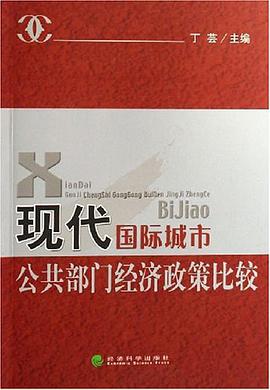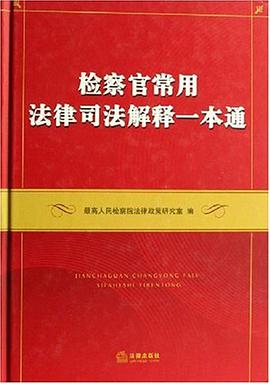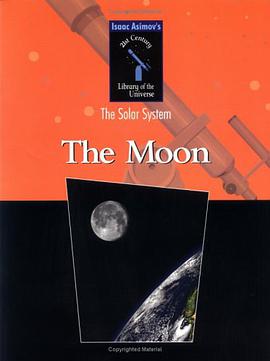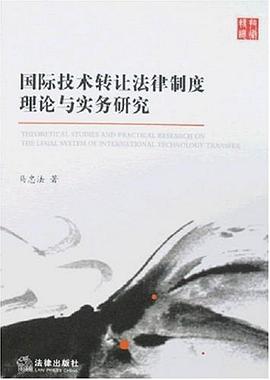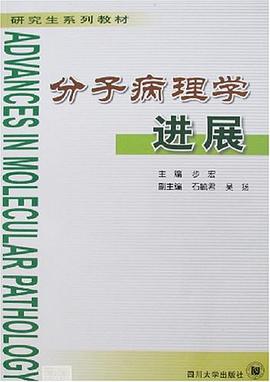

具体描述
The winner of the 2007 National Book Critics Circle Award in Poetry, and a 2008 "New York Times" Notable Book "Look at her--It's as ifThe windows of night have been sewn to her eyes." --from "Ode to History" Mary Jo Bang is the author of four previous books of poetry, including "Louise in Love" and "The Eye Like a Strange Balloon." She lives in St. Louis, Missouri, where she is a Professor of English and Director of the Creative Writing Program at Washington University. Winner of the National Book Critics Circle Award Mary Jo Bang's fifth collection, "Elegy," chronicles the year following the death of her son. By weaving the particulars of her own loss into a tapestry that also contains the elements common to all losses, Bang creates something far larger than a mere lament. Continually in search of an adequate metaphor for the most profound and private grief, the poems in "Elegy" confront, in stark terms and with a resilient voice, how memory haunts the living and brings the dead back to life. Within these intimate and personal poems is a persistently urgent, and deeply touching, examination of grief itself. "The loss of a child--especially an only child who is in the prime of life--is one of the most painful experiences anyone can have and one, common sense tells us, almost impossible to render in an age of sensory overload. But Mary Jo Bang's "Elegy" is the grand exception. In its insistence on 'the inexhaustive / Need to be accurate.' "Elegy" is wholly absorbing. Avoiding all self-pity, false comfort, sentimentality or finger pointing, Bang's terse, oblique poems anatomize grief, guilt, and mourning in pitiless detail. Do things 'improve' by the end of the year whose progress this heartbreaking book charts? Not really, but the reader is transformed. I know of no contemporary elegy that has its power."--Marjorie Perloff "The palette is drained; the weather chilled. The tone is formal, the voice even; the feeling is scoured out. This is where time stops, breath stops. Every word stands naked, stands alone, facing a door, an opening. 'Wonderful/Awful.' This is where time stops, breath stops. Words are chosen and framed and hung because they must be, not because they make an unbearable loss one whit more bearable, but they position us a step closer to seeing the beginning (of love) and the end (of life). Something. 'Ancient and every and over.' This is our beautiful glimpse of forever. Mary Jo Bang's "Elegy" is a harrowing, necessary work."--C.D. Wright "Mary Jo Bang's remarkable elegies recall the late work of Ingeborg Bachmann--a febrile, recursive lyricism. Like Nietzsce or Plath, Bang flouts naysayers; luridly alive, she drives deep into aporia, her new sad country. Her stanzas, sometimes spilling, sometimes severe, perform an uncanny death-song, recklessly extended--nearly to the breaking point."--Wayne Koestenbaum "Perhaps everyone has a story that could break your heart--the poems that make up "Elegy" break mine. These poems are astonishing--here is fierce, controlled abandon, here is one of our finest poets utterly in the moment, yet the moment is unbearable. 'Theirs is no waking from death, ' bang writes, and yet each of these poems is fully alive."--Nick Flynn "In her powerful fifth collection, Bang asks, What is elegy but the attempt / To rebreathe life/ Into what the gone one once was. Writing to mourn the death of her adult son, Bang interrogates the elegiac form and demands of it more than it can give, frustrated, over and over again, with memory, which falls pitifully short of life: Memory is deeply not alive; it's a mock-up/ And this renders it hateful. The urgent line breaks of Bang's fractured sentences build their own drama, as if her precisions might determine whether or not she will cross the fissures between what she wants to say and what she can't. Aware that there is no vocabulary equal to conveying the pain of losing a loved one or the struggle to be faithful to the loss, the poet ruefully admits, That's where things went wrong./ Is went into language. Plumbing a world made strange by grief means forsaking the mundane; as a result, there are only a few everyday objects in these poems--an overcoat, roller-skates and Phenobarbital pills. Ostensibly a linear account of a year of sorrow, the structure of the collection suggests rather that grief might be crystalline, the poems accruing around a memory that won't move on: I say Come Back and you do/ Not do what I want. While the poet must write and rewrite in order to get her subject right, the mother of a dead child writes to fill the a bottomless chasm.Like Joan Didion in "The Year of Magical Thinking," Bang finds no easy consolation, and there is pain for the reader here, too, as when, toward the end of the collection, Bang writes, Everything Was My Fault / Has been the theme of the song. Calling to mind Sharon Olds's "The Father" and Donald Hall's "Without," two other harrowing contemporary book-length poetic studies of loss, Bang offers, if not hope, a kind of keeping company, a way, however painful, to go on: Otherwise no longer exists./ There is only stasis, continually/ Granting ceremony to the moment."--"Publishers Weekly" (starred review)
作者简介
目录信息
读后感
评分
评分
评分
评分
用户评价
我是在一次偶然的机会接触到这本书的,当时只是被它简洁的书名吸引,没想到打开之后就再也停不下来了。作者在构建这个故事世界的时候,展现出了惊人的想象力,那些奇特的设定、充满神秘感的地点,都让我感到非常新奇。我尤其着迷于故事中那些古老的传说和隐藏的秘密,它们如同迷雾一般,一层层地拨开,让我对真相充满了好奇。书中的人物也都非常立体,没有绝对的好人或坏人,每个人都有自己的立场和动机,他们的选择和挣扎,让我思考很多关于人性、命运和道德的问题。我特别喜欢书中关于“选择”的探讨,在重重困境面前,主人公是如何权衡利弊,做出艰难决定的,每一次选择都牵动着我的心弦。读完之后,我有一种意犹未尽的感觉,仿佛自己也参与了一场惊心动魄的冒险,并且从中获得了很多启示。我还会时不时地回想起书中的某些细节,那些耐人寻味的描写,仿佛在我脑海中留下了深刻的烙印。
评分我很少写评价,但这本书真的让我印象深刻,必须好好说一说。它给我带来的阅读体验非常独特,有点像是做了一场真实而又奇幻的梦。书中的语言充满了诗意,每一个词语的运用都恰到好处,仿佛经过精心打磨。我喜欢它营造的那种氛围,既有淡淡的忧伤,又有难以言喻的美丽。故事的情节可能不像一些畅销书那样跌宕起伏,但它胜在细腻和引人入胜。我常常会在阅读的时候,被某个意象或者某种情感触动,然后停下来,静静地品味。书中的人物,特别是主人公,他们的成长和蜕变,让我看到了生命的韧性。我被他们身上的那种坚持和勇气所打动,即使面对再大的困难,也从未放弃过希望。这本书让我明白,即使生活中有阴影,也总会有光芒穿透。
评分这本书我花了整整一个周末才看完,因为真的太吸引人了,每翻一页都感觉自己身临其境。作者的笔触非常细腻,尤其是在描绘人物内心世界的时候,那种纠结、迷茫、痛苦又夹杂着一丝希望的情感,被刻画得入木三分。我经常会因为某个角色的遭遇而感到心痛,又会因为他们短暂的释怀而跟着松一口气。故事的节奏把握得很好,有跌宕起伏的情节,也有静谧沉思的片段,让我沉醉其中,仿佛时间都停止了。我特别喜欢其中一个场景,主人公在雨中独自漫步,周围的一切都模糊了,只有他内心的声音在回响,那种孤独和决绝,我至今仍能感受到。书中的对话也写得非常自然,没有刻意的雕琢,却能准确地传达角色的性格和他们之间的关系。我印象深刻的是,有一次我读到凌晨三点,因为实在放不下,第二天早上顶着黑眼圈去上班,但心里却依然回荡着书中的情节。这本书不仅仅是一个故事,它更像是一面镜子,映照出我们每个人内心深处的情感,让我们重新审视自己。
评分这本书就像一位老朋友,在我最需要的时候,给予了我温柔的慰藉。我喜欢它朴实无华的语言,没有过多的修饰,却能触动人心最柔软的地方。书中的故事,虽然可能没有惊天动地的事件,但却充满了生活的智慧和人性的光辉。我从中学到了很多关于如何面对孤独,如何寻找内心的平静。主人公的经历,虽然带着些许的遗憾,但却展现出了生命的另一种可能。我特别喜欢书中那些关于“寻找”的描写,主人公在迷失中寻找方向,在困苦中寻找力量,这种过程让我感到非常真实和鼓舞人心。读这本书的时候,我常常会放下手机,静静地坐着,感受它带给我的宁静。它让我明白,生活不一定非要轰轰烈烈,平凡中也蕴藏着不凡的力量。
评分这是一本让我久久不能平静的书。它所探讨的主题非常深刻,触及到了我内心深处的一些敏感点。作者没有直接给出答案,而是通过故事的展开,引导我去思考。我喜欢它那种不煽情却能直击人心的力量。书中的一些段落,我反复读了好几遍,每一次都能有新的体会。我特别欣赏作者的叙事方式,它不是线性叙事,而是通过碎片化的回忆和闪回,一点点地拼凑出完整的画面,这种方式让我感到非常沉浸,仿佛在跟随主人公的思绪一起探索。书中的情感表达也十分克制,却又异常强烈,那种压抑在心底的痛楚,和偶然爆发的宣泄,都让我感同身受。我甚至会在夜深人静的时候,想象自己置身于书中的场景,感受那种复杂的情绪。这本书给了我很大的触动,让我对生活有了更深的理解,也让我对自己有了更清晰的认知。
评分 评分 评分 评分 评分相关图书
本站所有内容均为互联网搜索引擎提供的公开搜索信息,本站不存储任何数据与内容,任何内容与数据均与本站无关,如有需要请联系相关搜索引擎包括但不限于百度,google,bing,sogou 等
© 2026 book.quotespace.org All Rights Reserved. 小美书屋 版权所有






